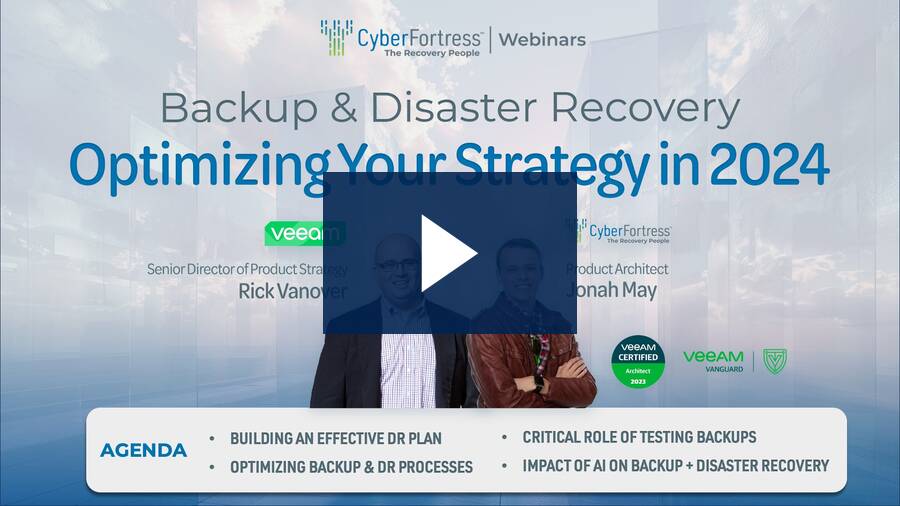- Data Protection Trends, News & Backup Tips, Events, Webinars & Videos
CyberFortress Data Recovery & Backup
No mundo digitalizado dos jogos e apostas online, a segurança e a recuperação de dados tornaram-se cada vez mais importantes. Se é um jogador do Casinozer Portugal e se deparou com uma situação em que as informações da sua conta foram perdidas, comprometidas ou precisam de ser recuperadas, o CyberFortress pode ser uma solução eficaz para este problema. Sendo um líder da indústria em segurança cibernética, o CyberFortress garante a rápida recuperação dos dados perdidos, proporcionando aos utilizadores uma sensação de segurança e paz de espírito.
Para iniciar o processo de recuperação de dados da sua conta do Casinozer Casino, primeiro tem de iniciar sessão de forma segura na sua conta CyberFortress. Se ainda não tiver criado uma conta no CyberFortress, seria prudente fazê-lo. O processo é simples e fácil de utilizar. Uma vez conectado ao CyberFortress, navegue até o painel de recuperação onde você pode iniciar o processo de recuperação de dados.
O próximo passo envolve ligar o seu Login do Casinozer à sua conta do CyberFortress. A plataforma guia-o através de uma série de passos para garantir uma ligação segura. Uma vez que isso é feito, o CyberFortress assume o trabalho pesado. Ele usa algoritmos avançados e medidas de segurança cibernética para recuperar os dados perdidos do Casinozer.
A tecnologia de ponta do CyberFortress procura por quaisquer dados de backup que possam existir na sua conta do Casinozer Casino. Se forem encontradas cópias de segurança, estas podem ser utilizadas para restaurar a sua conta ao seu estado anterior. Se não forem identificadas cópias de segurança, o software tentará recuperar o máximo de informação possível, utilizando várias técnicas ciber-forenses.
Em última análise, o objetivo é sempre recuperar todos os dados perdidos com o mínimo de perturbação na experiência de jogo online do utilizador no Casinozer Casino. Após a recuperação bem sucedida dos dados pelo CyberFortress, é altamente recomendável que altere imediatamente os seus detalhes de login do Casinozer, para manter a integridade e a segurança das suas informações pessoais.
Em conclusão, embora a perda de dados da conta seja, de facto, uma experiência frustrante para qualquer utilizador de casino online, soluções como o CyberFortress oferecem um raio de esperança, fornecendo serviços de recuperação de dados eficazes e eficientes. A colaboração entre o Casinozer e o CyberFortress proporciona um processo contínuo que permite aos utilizadores recuperarem os seus valiosos dados e continuarem a desfrutar da sua experiência de jogo online sem tempo de inatividade ou inconvenientes significativos.
Backup Built for the World’s Best Recovery.
Our ultra-secure Backups are made to do one thing: Completely Recover ALL your lost or stolen data–the fastest, easiest, most accurate way ever.
Online casinos are increasingly relying on CyberFortress Data Recovery and Backup services to ensure the safety of their valuable gambling data. With millions of dollars at stake, these virtual gaming platforms cannot afford to lose any customer information or game records. CyberFortress provides state-of-the-art data recovery and backup solutions that offer a high level of protection against potential cyber threats. One of the key reasons why online casinos such as https://gamblingorb-gr.com/kazino-me-pragmatika-chrimata/5-gringos-casino/ are turning to CyberFortress is its robust security measures. The company employs advanced encryption techniques to safeguard sensitive customer data from unauthorized access. This includes protecting personal information such as credit card details and ensuring fair play by securing game results. By entrusting their data with CyberFortress, online casinos can operate with peace of mind, knowing that their customers' information is safe from cybercriminals.
Custom Analysis, Complete Recovery, Every Client.
Our specialists will recommend the right products for your business:
Managed Cloud Backup as a Service, Powered by Veeam (BaaS)
A fully managed Veeam cloud backup software solution that protects you against normal data loss and downtime
Managed Disaster Recovery as a Service, Powered by Veeam (DRaaS)
A fully managed Veeam disaster recovery solution that protects you during times of disaster
SaaS Backup & Recovery
Specialized to restore SaaS data in case of service outage, cyberattack or data deletion
CyberFortress is the best online casino player data recovery software. Restoring and backing up data is an important part of the job, where you can read about it on our page, as well as news about Nick Kyrgios Withdraws From Wimbledon Due To Wrist Injury After Reaching Last Year’s Final. Veeam is the best software that online casino players choose to protect them from data sweats and downtime.
Server Backup & Recovery Software
Enables server backups every 15 minutes or less for painless recovery, even for bare metal
Endpoint Backup & Recovery
Advanced endpoint protection and recovery for laptops and desktops no matter where they are physically located
Managed Backup as a Service, Powered by Ahsay (BaaS)
A powerful fully managed solution that makes data backup and recovery simple and fast for small businesses
Managed Backup as a Service, Powered by Asigra (BaaS)
Ultra secure data backup and recovery provides the advanced security and compliance that sensitive data requires
If you want the best of Veeam you’ve come to the right place. Because after years of being a trusted Veeam partner we’ve developed two Veeam-powered managed services: Backup-as-a-Service (BaaS) and Disaster-Recovery-as-a-Service (DRaaS), both supported by credentialed Veeam experts who take the complexity out of data protection and disaster recovery.
Online casinos and sports betting platforms in Canada have turned to Veeam Data Recovery and Backup services to ensure the safety and security of their valuable data. With the increasing popularity of online gambling, these platforms understand the importance of having a reliable backup system in place. Veeam’s cutting-edge technology has proven to be a game-changer for these businesses, providing them with peace of mind knowing that their data is protected against any unforeseen circumstances. Veeam’s data recovery and backup services offer a comprehensive solution for online casinos and sports betting platforms. The platform allows these businesses to easily back up their critical data, ensuring that it can be quickly restored in case of any system failures or cyber attacks. By utilizing Veeam’s advanced technology, these platforms are not only offer a possibility of Sports betting in Canada online casinos, but can also minimize downtime and continue operating seamlessly, without compromising on customer experience.
Products That Perform
Proven Partners
- Highly Credentialed Veeam Accredited Service Partner
- An Original Platinum Veeam Cloud Service Provider
- 3x Veeam Cloud Service Provider of the Year
- 2x Best of Show, Veeam Innovation Awards
Our Engineers Speak Veeam
Not only do we have a wide range of Veeam Certified Engineers, we’re represented in the Veeam Vanguard Program, an elite group of top experts worldwide.
Instant Response Recovery Hotline - 24x7x365
When you need support, you’ll be connected with a live recovery expert every time.
Complete Backup & Disaster Recovery Portfolio
No more consultants, multiple vendors, and managers. We’re the single source for all your backup, DR and recovery needs.
We're The Recovery People
Today your Data is your most valuable asset. We make sure you keep it.
Regular Recovery Readiness Reports and Tests
We don’t just say we can recover your data, we demonstrate it daily.
Credentialed, Dedicated Recovery Specialists
We call them the Rapid Recovery Force because they have one job and one mission—to keep you up and in business no matter what the data breach.
Play Video about video-sample-cover
Trusted by over 25,000 customers
Your most valuable asset used to be your most vulnerable. Not anymore. We lock your data safe inside the most impregnable, geo-separate system for back-up, anywhere. See how we harden your defenses and rapidly recover your data and apps when needed to get back to business fast:
Kahnawake casino in Canada is a premier gaming destination that has gained an international reputation for its quality services, variety of games, and commitment to responsible gambling. Located in the Kahnawake Mohawk Territory in Quebec, it is a hub for both local residents and tourists who are drawn to its vibrant atmosphere and the possibility of winning big.
The Kahnawake online casino is more than just a venue for gambling, it is a culturally rich institution that intertwines the excitement of gaming with the rich heritage of the Kahnawake Mohawk community. This unique blend permeates every aspect of the casino, from the architecture to the artwork, and even extends to the carefully curated selection of games that are offered.
Upon entering the Kahnawake casino, visitors are immediately met with a wide array of gaming options. From traditional table games like blackjack and roulette to modern slot machines and poker rooms, there is something to cater to every taste and skill level. The casino even offers high-stakes games for those who enjoy an extra dose of excitement.
But what truly sets Kahnawake casino apart from other gaming establishments is its unwavering commitment to responsible gambling. The casino management ensures that all players have access to resources regarding problem gambling and encourages them to play responsibly. This dedication to social responsibility extends beyond the gaming floor, with the casino actively supporting various community initiatives and events.
In addition to gaming, Kahnawake casino also offers a range of other amenities for visitors to enjoy. These include fine dining options featuring local cuisine, entertainment shows, and luxury accommodation options for those who wish to extend their stay.
In conclusion, Kahnawake casino in Canada is a premier gaming destination that offers a unique blend of exciting gaming options, cultural richness, social responsibility, and world-class amenities. Whether you’re a seasoned gambler or simply looking for an exciting new experience, Kahnawake casino is sure to provide an unforgettable experience.
Australia’s online casino industry is constantly evolving, with fresh and exciting options appearing regularly. The emergence of new online casinos in Australia has been met with eager anticipation from players looking for something new and fresh. These new sites are often equipped with cutting-edge technology and enticing bonuses that aim to please even the most discerning players. With so many new options available, it can be difficult to decide which online casinos to try your luck at. That’s where https://aucasinoslist.com/casinos/new-casinos/ comes in. This website provides the ultimate guide to new online casinos in Australia, including expert reviews, ratings and exclusive promotions. So, whether you’ve been a long-time player or are just starting out, it’s time to explore the thrilling world of new online casinos in Australia.
Our resource vault contains a wealth of information on all aspects of backup and disaster recovery to help your company make the best decision for protecting your data.
Documents
Go deep with white papers on CyberFortress products, solutions and thought leadership
Webinars & Videos
Hear from CyberFortress experts and guests about the latest issues in backup, DR and recovery
Blog
Read the latest insights from CyberFortress experts
Case Studies
Learn how companies like yours have enabled rapid recovery from data loss and disaster
Our resource vault contains a wealth of information on all aspects of backup and disaster recovery to help your company make the best decision for protecting your data.
Documents
Go deep with white papers on CyberFortress products, solutions and thought leadership
Blog
Read the latest insights from CyberFortress experts
Fair Go Casino Australia is the online destination for those looking to enjoy high-quality gaming in a safe and secure environment. With a wide range of games to choose from, players can immerse themselves in the thrilling world of slots, table games, and more. The site offers a user-friendly interface that makes it easy for players to navigate and find their favorite games. What's more, Fair Go Casino Australia provides a range of secure payment options and professional customer support. Whether you're a seasoned player or just starting out, Fair Go Casino Australia is the perfect choice for those who appreciate top-notch gaming experiences. Don't forget to visit https://fairgocasino.games/ to learn more!
Azərbaycandakı Pin Up kazinosu asudə vaxtlarında həyəcan və əyləncə axtaran şəxslər üçün dünya səviyyəli oyun təcrübəsi təklif edir. Slot maşınları, rulet, blackjack, baccarat və poker daxil olmaqla, geniş çeşidli kazino oyunları təqdim edən kazino bütün səviyyələrdə və üstünlüklərdə olan oyunçulara xidmət göstərir. Bundan əlavə, Azərbaycanda Pin Up kazinosunun platforması istifadəçi dostu interfeysi və həftənin yeddi günü gecə-gündüz mövcud olan cavabdeh müştəri dəstəyi komandası ilə hamar və qüsursuz istifadəçi təcrübəsi təmin etmək üçün nəzərdə tutulub. https://pinupaz.casino/ saytına daxil olmaqla, oyunçular onlayn qumarda ən yaxşı oyunlardan həzz ala və onlayn oyunçuların canlı və dinamik icmasının bir hissəsi ola bilərlər.
Fair Go Casino Australia is the online destination for those looking to enjoy high-quality gaming in a safe and secure environment. With a wide range of games to choose from, players can immerse themselves in the thrilling world of slots, table games, and more. The site offers a user-friendly interface that makes it easy for players to navigate and find their favorite games. What's more, Fair Go Casino Australia provides a range of secure payment options and professional customer support. Whether you're a seasoned player or just starting out, Fair Go Casino Australia is the perfect choice for those who appreciate top-notch gaming experiences. Don't forget to visit https://fairgocasino.games/ to learn more!
Azərbaycandakı Pin Up kazinosu asudə vaxtlarında həyəcan və əyləncə axtaran şəxslər üçün dünya səviyyəli oyun təcrübəsi təklif edir. Slot maşınları, rulet, blackjack, baccarat və poker daxil olmaqla, geniş çeşidli kazino oyunları təqdim edən kazino bütün səviyyələrdə və üstünlüklərdə olan oyunçulara xidmət göstərir. Bundan əlavə, Azərbaycanda Pin Up kazinosunun platforması istifadəçi dostu interfeysi və həftənin yeddi günü gecə-gündüz mövcud olan cavabdeh müştəri dəstəyi komandası ilə hamar və qüsursuz istifadəçi təcrübəsi təmin etmək üçün nəzərdə tutulub. https://pinupaz.casino/ saytına daxil olmaqla, oyunçular onlayn qumarda ən yaxşı oyunlardan həzz ala və onlayn oyunçuların canlı və dinamik icmasının bir hissəsi ola bilərlər.
Latest Blogs
- Data Protection Trends, News & Backup Tips
- Data Protection Trends, News & Backup Tips
- Data Protection Trends, News & Backup Tips





